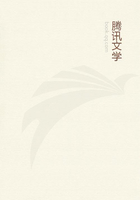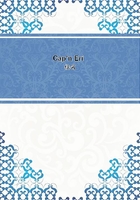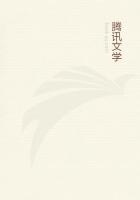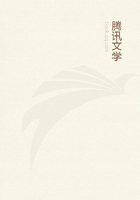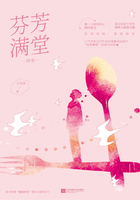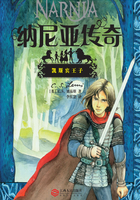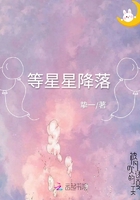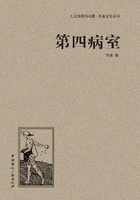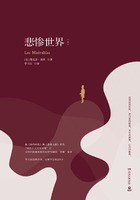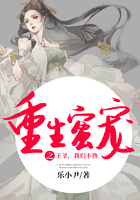4. For the accomplishment of the great works of atonement and perfect obedience, it was needful that the Lord Jesus should take upon Him "the likeness of sinful flesh." Thus, _He became one with us in our nature_, for in Holy Scripture all partakers of flesh and blood are regarded as of one family. By the fact of common descent from Adam, all men are of one race, seeing that "God hath made of one blood all nations that dwell upon the face of the earth." Hence, in the Bible, man is spoken of universally as "thy brother" (Lev. xix. 17; Job xxii. 6; Matt. v. 23, 24; Luke xvii.
3; Rom. xiv. 10, &c., &c.); and "thy neighbour" (Exod. xx. 16;
Lev. xix. 13-18; Matt. v. 43; Rom. xiii. 9; James ii. 8); to whom, on account of nature and descent, we are required to render kindness and goodwill. Now, although our great Melchizedek in His divinity is without father, without mother, without descent, having neither beginning of days nor end of life, and is both in essence and rank at an infinite remove from fallen manhood; yet as to His manhood He is to be reckoned as one of ourselves. He was born of a woman, He hung upon her breasts, and was dandled upon her knee; He grew from infancy to youth and thence to manhood, and in every stage He was a true and real partaker of our humanity. He is as certainly of the race of Adam as He is divine. He is God without fiction or metaphor, and He is man beyond doubt or dispute. The Godhead was not humanized, and so diluted; and the manhood was not transformed into divinity, and so rendered more than human. Never was any man more a portion of His kind than was the Son of man, the Man of sorrows and the Acquaintance of grief.
He is man's Brother, for He bore the whole nature of man. "The Word was made flesh, and dwelt among us." He who was very God of very God made Himself a little lower than the angels, and took upon Him the form of a servant, and was made in the likeness of men.
This was done with the most excellent design with regard to our redemption, inasmuch as it was necessary that, as _man_ had sinned, _man_ should suffer; but doubtless it had a further motive, the honouring of the Church, and the enabling of her Lord to sympathize with her. The apostle most sweetly remarks, "Forasmuch then as the children are partakers of flesh and blood, He also Himself likewise took part of the same; that through death He might destroy him that had the power of death, that is, the devil; and deliver them who through fear of death were all their lifetime subject to bondage" (Heb. ii. 14, 15); and again, "For we have not an high priest which cannot be touched with the feeling of our infirmities; but was in all points tempted like as we are, yet without sin" (Heb. iv. 15). Thus, in ties of blood, Jesus, the Son of man, is one with all the heirs of heaven: "For which cause He is not ashamed to call them brethren" (Heb. ii. 11). What reason we have here for the strongest consolation and delight, seeing that, "Both He that sanctifieth and they who are sanctified are all of one." We can say of our Lord as poor Naomi said of bounteous Boaz, "The man is near of kin unto us, one of our next kinsmen." Overwhelmed by the liberality of our blessed Lord, we are often led to cry with Ruth, "Why have I found grace in thine eyes, that thou shouldest take knowledge of me, seeing I am a stranger?" and are we not ready to die with wonder when, in answer to such a question, He tells us that He is our Brother, bone of our bone, and flesh of our flesh?
If, in all our straits and distresses, we would always treasure in our minds the remembrance of our Redeemer's manhood, we should never bemoan the absence of a sympathizing heart, since we should always have His abundant compassion for our consolation.
He is no stranger, He is able to enter into the heart's bitterness, for He has Himself tasted the wormwood and the gall.
Let us never doubt His power to sympathize with us in our infirmities and sorrows.
There is one aspect of this subject of our natural union to Christ which it were improper to pass over in silence, for it is very precious to the believer. While the Lord Jesus takes upon Himself our nature (2 Peter i. 4), He restores in us that image of God (Gen. i. 27) which was blotted and defaced by the fall of Adam. He raises us from the degradation of sin to the dignity of perfection. So that, in a two-fold sense, the Head and members are of one nature, and not like that monstrous image which Nebuchadnezzar saw in his dream. The head was of fine gold, but the belly and the thighs were of brass, the legs of iron, and the feet, part of iron and part of clay. Christ's mystical body is no absurd combination of opposites; the Head is immortal, and the body is immortal, too, for thus the record stands, "Because I live, ye shall live also." "As is the heavenly, such are they also that are heavenly." "As we have borne the image of the earthy, we shall also bear the image of the heavenly:" and this shall in a few more years be more fully manifest to us, for "this corruptible must put on incorruption, and this mortal must put on immortality." Such as is the Head, such is the body, and every member in particular;--a chosen Head, and chosen members; an accepted Head, and accepted members; a living Head, and living members. If the Head be of pure gold, all the parts of the body are of pure gold also. Thus is there a double union of nature as a basis for the closest communion.
Pause here, and see if thou canst, without ecstatic amazement, contemplate the infinite condescension of the Son of God in exalting thy wretchedness into blessed union with His glory. Thou art so mean that, in remembrance of thy mortality, thou mayest say to corruption, "Thou art my father," and to the worm, "Thou art my sister;" and yet, in Christ, thou art so honoured that thou canst say to the Almighty, "Abba, Father," and to the Incarnate God, "Thou art my Brother and my Husband."

